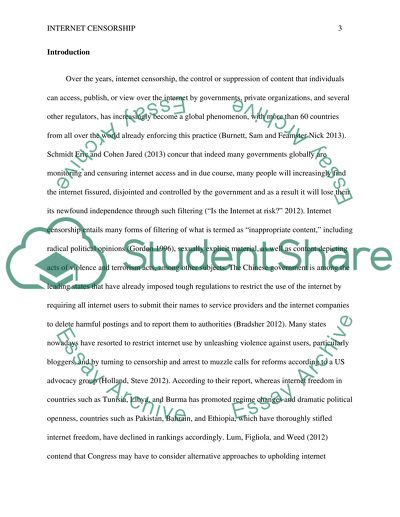Cite this document
(“Does increase in Internet censorship restrict open access for its Research Paper”, n.d.)
Does increase in Internet censorship restrict open access for its Research Paper. Retrieved from https://studentshare.org/information-technology/1625845-does-increase-in-internet-censorship-restrict-open-access-for-its-users
Does increase in Internet censorship restrict open access for its Research Paper. Retrieved from https://studentshare.org/information-technology/1625845-does-increase-in-internet-censorship-restrict-open-access-for-its-users
(Does Increase in Internet Censorship Restrict Open Access for Its Research Paper)
Does Increase in Internet Censorship Restrict Open Access for Its Research Paper. https://studentshare.org/information-technology/1625845-does-increase-in-internet-censorship-restrict-open-access-for-its-users.
Does Increase in Internet Censorship Restrict Open Access for Its Research Paper. https://studentshare.org/information-technology/1625845-does-increase-in-internet-censorship-restrict-open-access-for-its-users.
“Does Increase in Internet Censorship Restrict Open Access for Its Research Paper”, n.d. https://studentshare.org/information-technology/1625845-does-increase-in-internet-censorship-restrict-open-access-for-its-users.


